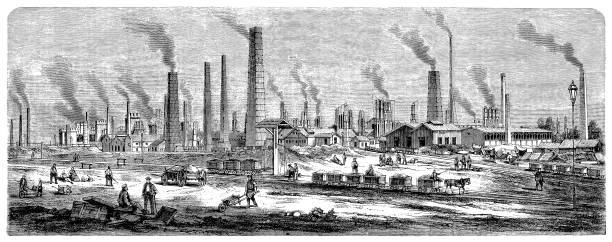The Industrial Revolution: A Journey of Innovation and Change
The Industrial Revolution was an exciting time in history that transformed America and the world. It brought about significant changes in how things were made, how people worked, and how society functioned.

The Industrial Revolution was a time of immense change, innovation, and progress. It shaped the modern world we live in today, impacting industries, transportation, and communication. Through its inventions and advancements, it propelled society forward and brought about new opportunities and challenges. The revolution laid the foundation for the technological advancements we continue to enjoy and explore.
Timeline
1760-1840:The Industrial Revolution begins in Great Britain, with advancements in textiles, iron production, and steam power.
1793:Eli Whitney invents the cotton gin, revolutionizing cotton production and leading to a boom in the textile industry.
1807: Robert Fulton launches the first commercially successful steamboat, the Clermont, improving transportation and trade.
1825:The Erie Canal opens, connecting the Great Lakes to the Atlantic Ocean and enabling faster and cheaper movement of goods.
1869:The completion of the First Transcontinental Railroad in the United States revolutionizes transportation and trade, connecting the East and West coasts.
Fun Facts
The first industrial revolution began in Great Britain in the late 18th century and spread to the United States in the early 19th century.
Steam power was a game-changer during this time, fueling the growth of factories and transportation systems.
The assembly line, invented by Henry Ford, revolutionized mass production and made cars more affordable for everyone.
The telegraph and Morse code allowed people to communicate quickly over long distances.
The Industrial Revolution brought about a shift from handmade goods to machine-made products, leading to a rise in consumer culture.
Important Historical Figures
Eli Whitney:Invented the cotton gin, which increased cotton production and fueled the textile industry.
Samuel Slater: Known as the "Father of the American Industrial Revolution" for bringing textile manufacturing techniques from Britain to the United States.
Robert Fulton: Pioneered steamboat technology, revolutionizing water transportation.
Henry FordIntroduced the assembly line, making mass production of automobiles more efficient and affordable.
Thomas Edison Inventor of the phonograph, electric light bulb, and numerous other inventions that transformed everyday life.